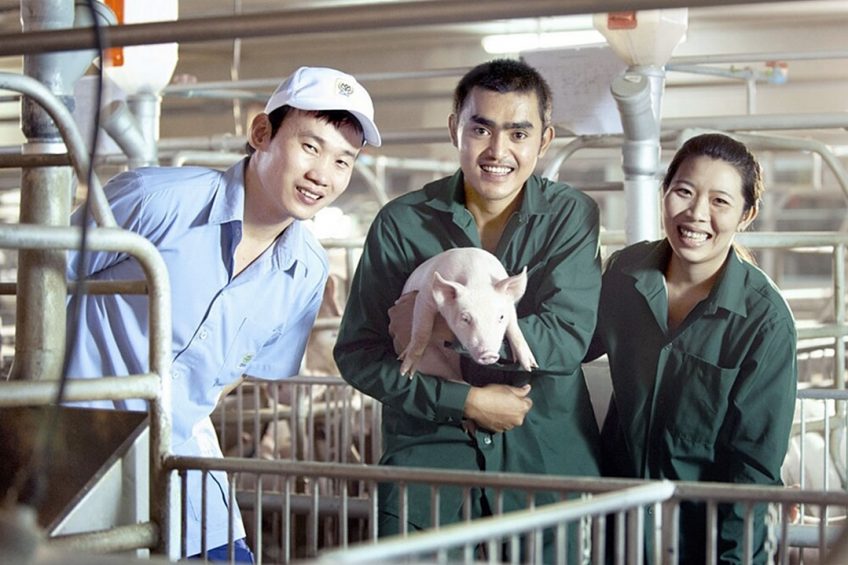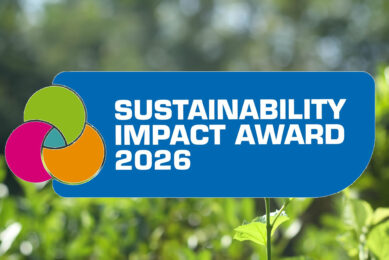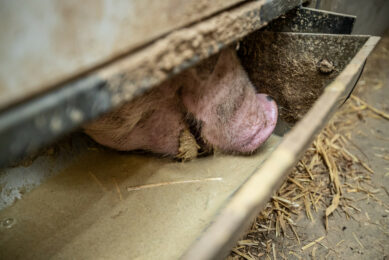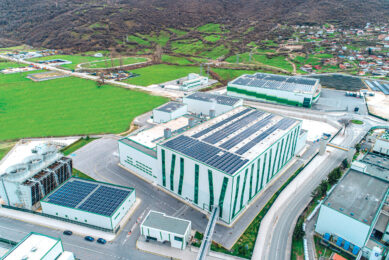Sustainable contract farming moving forward

Constantly improving both environmental, sustainable and social responsible production, that is the core of the Thailand based CP Foods mission. Evaluated according to international accepted standards proves the company is on the right track and moving forward fast.
CCPF initiated the contract farming scheme in 1975 to support small-scaled livestock farmers. The idea was to equip farmers with farming technology and knowledge and support them going forward. Just recently the scheme was evaluated and it shows that improvements can be seen as farmers earn a better income and mitigation on environmental impacts, such as reducing greenhouse gases. Wuthichai Sithipreedanant, senior VP for corporate social responsibility and sustainable development of CP Foods, says that the evaluation* of the contract farming scheme’s social and environmental impacts was carried out for the first time in 2018, against international benchmarks.
Under the Impact Valuation method, the positive and negative value contribution of farming activities to society in monetary terms was determined. The valuation method was revised in late 2019 when the number of contracted farmers increased to 230 from the previous year. The latest evaluation has been carried out under revised indicators. The results confirmed the initiatives role in sustainable development.
The scheme’s economic contribution shows that farmers earned a total tbt108 million (€ 2.9m), bringing down the number of farmers under the poverty line from 40% to 0%. Last year’s results showed a reduction from 38% to 0%. On the social aspect side, farmers enjoyed 2.4 more hours of free time. More time with the family resulted in less drug-related social problems and 85% of farmers were able to finance their children’s education to above the basic level.
Environment
On the environmental front, the valuation shows that nearly all farms of CP Foods contracted farmers adopt biogas techniques. The biogas systems installed treat manure and waste-water, containing the smell and methane. The treated waste-water, which is rich in nutrients, then goes to nearby plantation farms, further showing the harmony between the pig farms, the community and the environment.
It also showed that despite the fact that swine farms’ electricity and fuel usage emit greenhouse gases, the biogas techniques help farms reduce greenhouse gases by 168,000 tons (2019 results were 92,000 tons) of CO2 equivalent per year.
Future steps
It is safe to say that the social and environmental impacts created by this scheme are more than encouraging. The company also has a new goal, ‘to reduce GHG emissions by 25% in 2025’, Sithipreedanant says “Under the goal to achieve sustainable business operations and business growth, CPF adopts changes from the base year in both production process and products. Such changes – including power generation from biogas, rooftop solar energy and innovative environmental-friendly swine feed – have reduced CO2 emissions by 522,000 tons annually on average.”
Animal welfare standards
Animal welfare is also a part of this company’s core values. The company has vowed that it will strictly adhere to the compliance with animal welfare and antibiotic standards.
Dr Payungsak Somyanontanakul,President of Animal Welfare & Anti-Microbial Committee, says the company has continually improved its farming practices in line with the 5 Freedoms of Animal Welfare – freedoms from hunger and thirst; discomfort; pain; and injury; and freedom to express normal behaviour.
The 5 Freedoms are applicable to animals at all domestic poultry farms, pig farms and aquatic farms and contracted farmers’ farms together with efficient farm management that allows natural growth for the sake of animals’ growth and good health.
* The evaluation was based on Natural Capital Protocol and Social Capital Protocol of the World Business Council for Sustainable Development (WBCSD). It covered CPF’s income-guaranteed contract farming of the fattening pigs in the northern, northeastern, central, western, eastern and southern parts of Thailand.






